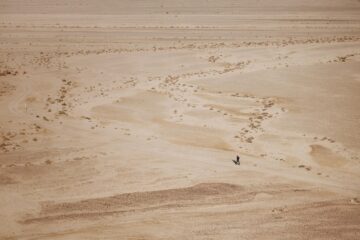Copy Book Warriors,
Certain to cause the eyes to roll backwards into some heads is a discussion about the need for virtue to sustain freedom. “I got it,” some might say while politely disengaging. “Of course!” others will assert as they return to daily work. “And your point?” still others might intone. Here’s the point. Do we get it? Do we understand that virtue forms our character and shapes the way we live? Do we grasp that character is vital in sustaining freedom, the very treasure that our Founding Fathers bequeathed to us? Will we be a constitutional republic where the rule of law—not the rule of man—governs? Or will we be a nation governed by arbitrary rules and political whims that shift like a fickle wind to suit whatever the current fancy we think we need to be happy? Will we be a people composed of individuals dependable to others or will we be accountable only to ourselves? The verdict on sustaining the republic into the future is still out as we struggle not only with our national identity, but our individual ones as well.
Historian and Christian apologist, Os Guinness, has written much about maintaining freedom in America and observes that there’s a paradox lurking in the freedom proposition. He writes this in his book A Free People’s Suicide: Sustainable Freedom and the American Future.
“Freedom always faces a fundamental moral challenge. Freedom requires order and therefore restraint, yet the only restraint that does not contradict freedom is self-restraint.
How are we doing in that regard to a society where we think freedom has come to mean doing what we want as opposed to doing what we ought? Guinness continues:
“In short, sustainable freedom depends on the character of the rulers and the ruled alike, and on the vital trust between them—both of which are far more than a matter of law. The Constitution, which is the fundamental law of the land, should be supported and sustained by the faith, character, and virtue of the entire citizenry, which comprises its moral constitution, or habits of the heart. Together with the Constitution, these habits of the heart are the real, complete, and essential bulwark of American liberty. A republic grounded only in a consensus forged of calculation and comprising self-interest can never last.”
What is it that governs our lives, that shapes our character or the “habits of the heart,” the term Alexis de Tocqueville coined? Indeed, what is it that makes us worthy of the self-governance that enables freedom? To be sure our “habits of the heart”—that “moral constitution”—are inspired by national symbols and icons, the concepts and principles of freedom, and the acts of patriots past and present. Indeed the sacrifices people have made in blood and treasure fighting for freedom are inspiring. Unmistakably, however, true habits of the heart are shaped by the lessons we learn in life, from our parents, grandparents, aunts and uncles, friends, instructors, and—yes—in our faith settings. There is much virtue to learn from these. There is much vice to witness there also and our challenge is to embrace what is right and doing what we ought, not simply what we want.
I suppose it boils down to one’s identity and the roles we assume in life. Michael J. Sandal wrote in Democracy’s Discontent that there are essentially two types of personal identities in society: the situated-self and the unencumbered-self. The former subscribes to the roles, responsibilities, and obligations they have freely chosen for themselves including those to a spouse, family, work, and community, state and nation, even if that requires sacrificing personal desires. The latter finds one’s identity vested in self above all else, even if it means walking away from the obligations you have freely chosen to embrace. In a free society either identity is an available choice. Which one is best suited to sustain freedom or, as Guinness points out, the one that best contributes to the “essential bulwark of American liberty?”
True identity is not found in your class or ethnicity. Neither is it found in educational degrees you have earned, money in your bank account, power you have obtained, mountains you have climbed, books you have written, or buildings you have built. True identity is found in the virtue you embrace that forms your character to fulfill situated roles and responsibilities in life.
On the obverse side of the Great Seal of the United States are the words Novus Ordo Seclorum, or “New Order of the Ages.” That’s what our founders envisioned; a new nation with a new identity that would require people to embrace the right individual identity to sustain it. Who we are determines what we are as a nation. On that score we have much work to do.
PS: If you already read my new book Desert Redleg: Artillery Warfare in the First Gulf War, please visit my book pages on Amazon and Goodreads to write a personal review. Give it your best rating so you can encourage others to read it also! Thanks!
Categories: CBW



0 Comments